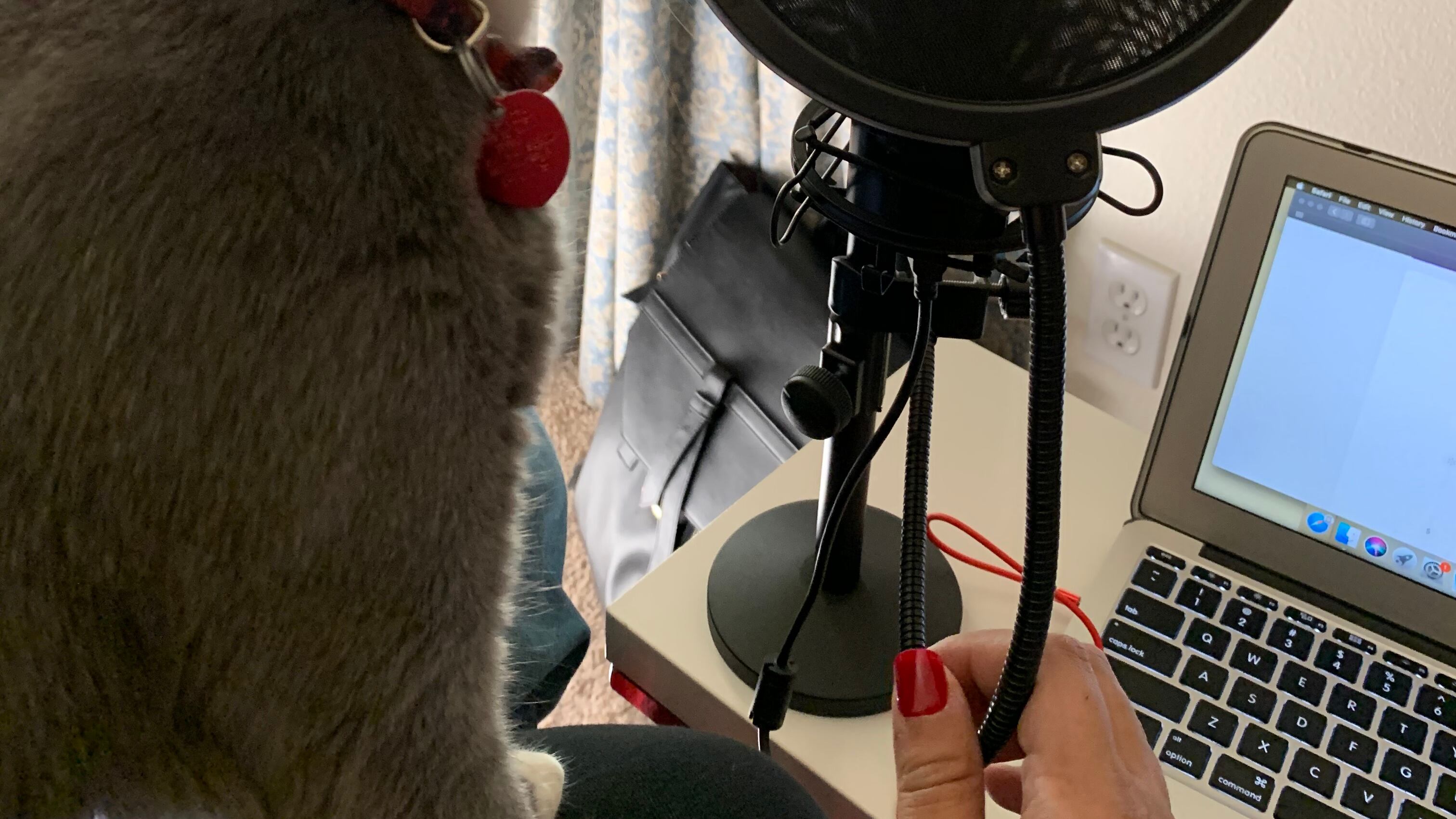Less than six months into the pandemic, Elyse Lopez ran out of true-crime podcasts.
Even pre-COVID, before we were forced to sequester and find new ways to lift the boredom, Lopez admits she regularly binged the genre—sometimes listening to her favorites, like Crime Junkie and Court Junkie, more than once. While hunkered down, she was forced to take in new content in real time—a devastatingly slow installment of once a week.
“That wasn’t enough for me,” Lopez says. “So I was like, ‘You know what? I’m just going to research and write cases that I’m interested in and start my own podcast.”
Which is how True Crime Cat Lawyer began.
Yes, the name is a bit misleading. Lopez is indeed a licensed attorney in Oregon and Washington (workers’ compensation law), but she doesn’t represent felines. Any true crimes recounted on the podcast that involve cats would be pure coincidence (and highly unusual). The cat in the title refers to Winston, Lopez’s beloved pet, co-host and True Crime mascot, whose tuxedo coat is appropriately accessorized with a red bow tie.
“She’s the face of the podcast because she’s far more beautiful than I could ever hope to be, and it’s nice to lure people in with a cute cat,” Lopez says. “You can’t say no to a cute cat.”
After a few opening chirps and meows from Winston at the start of each episode, Lopez quickly gets down to business. Her primary goal when digging into the details about serial killers, family annihilators, unsolved murders, and disappearances—most based in the Northwest—is to eliminate sensationalism, a storytelling filter that’s far too common in the genre, and present information as ethically as possible. That means fleshing out the victim, not centering on the perpetrator. (Lopez donates all Patreon platform and advertising proceeds to crime victim and animal welfare organizations.)
“I can always find information about the trial, things like that,” says Lopez. “But so often what we’re missing is who that person was. That person wasn’t just a person who was murdered. That person was a brother, a sister, a mom, a dad. Just giving them a voice where they wouldn’t otherwise have one.”
One case where humanizing the deceased was particularly important was the 2002 disappearances and murders of Ashley Pond and Miranda Gaddis of Oregon City. The story garnered national attention, but it’s far more personal to Lopez. She attended school with Gaddis in fifth grade, becoming friends with the girl before she moved.
“I really only mentioned [convicted killer] Ward Weaver insomuch as to say when he was sentenced and how long he’s serving in prison,” Lopez says. “I wanted it to be focused on the two girls.”
Now that she’s been combing through true crime for nearly two years, devoting episodes to everyone from Christian Longo to Diane Downs to the I-5 Killer, she says her favorite cases aren’t necessarily those that make headlines. Lopez is more interested in people who seemingly vanish off the face of the earth and don’t necessarily get any news coverage. Her hope is to give those cases more attention so someone will remember something and come forward with new information.
“Missing-persons cases are fascinating, because I truly don’t understand how someone can be here one minute and not here the next, especially when we look at cases from 2010 forward,” Lopez says. “Our phones are constantly sending little pings about where we are. I truly don’t understand how we’re still having missing persons.”

